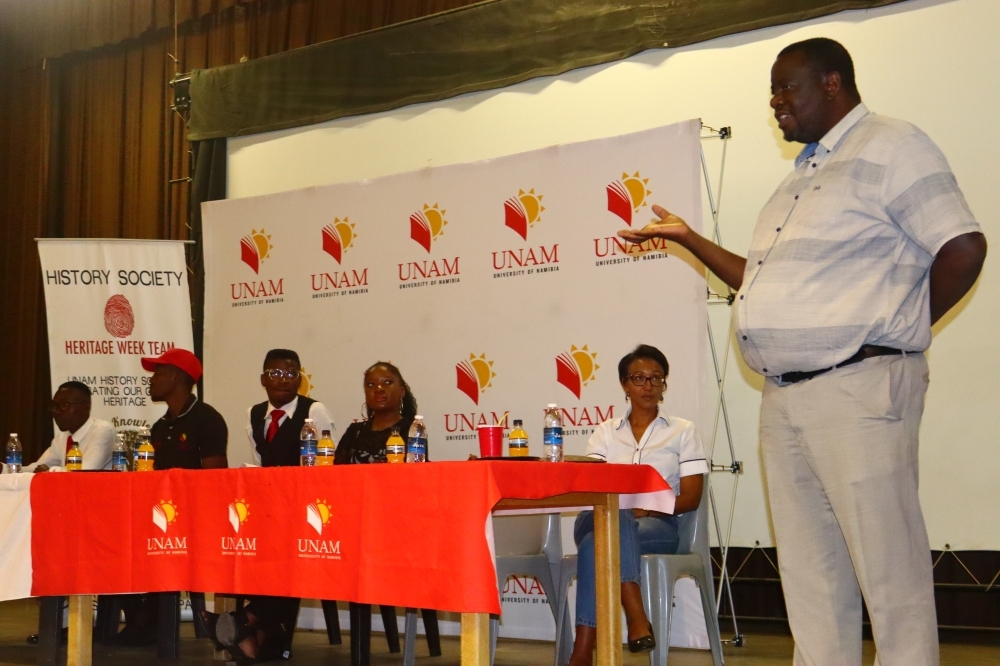History is alive and well
With the theme of "restoring our common history," the University of Namibia (Unam) history society officially opened for the 2023 academic year on 24 February at their main hall in Windhoek.Unam lecturers Kletus Muhana Likuwa and Emma Haitengi, who hold doctorates in history and archaeology, respectively, were the key speakers.
They shared their expertise with Academia Secondary School learners.
"Historians have been at the forefront, encouraging human beings to think typically and question the kind of knowledge they have about themselves and the world. History is the mother of all disciplines," Likuwa said.
He added that what human beings can know about the physical world depends on their understanding and observation of the different experiences of individuals. It is thus the job of the historian to put all the pieces of experience together and create bigger stories or narratives about who we are as a human race.
History and archaeology
Haitengi, described archaeology as the study of the material culture left by past societies, whereas history is the study of the written text, recorded by people from an earlier civilisation.
"Material culture refers to the things belonging to people who once lived at that certain place a very long time ago," she said.
Unlike archaeologists, she said, historians make use of documents like letters and diaries to tell stories of the past.
She said Hendrick Witbooi’s diaries are a good example.
She added that material culture studies focus on the remains that tell a history and help humans understand how people lived in the past and how they have since evolved.
Why history should be taught in schools
Jona Haukongo, a former president of the Unam history society, said that they promote the restoration of history at both the high school and university levels.
Haukongo said history teaches about how past societies, systems, ideologies, governments, cultures, and technologies were built, how they operated, and how they have changed over time.
History will also enable students to learn about the pillars upon which different civilisations were built, including cultures and people of ethnicities different from their own.
History society background
Haukongo indicated that he had initially revived the society in 2020 with the help of his fellow students but failed due to the Covid-19 pandemic. However, they remained steadfast and drew up the constitution the following year, finally succeeding and registering it with the university.
"As the former president and an early-career academic, I believe the future of this discipline lies in the hands of the young minds we train," he said.
He added that it is imperative that seniors honour and recognise the positive contributions of the students who choose to participate in this extramural activity while still maintaining a solid academic record.
The students should, in turn, strive to embody ethical leadership as they go out into the world.





Comments
My Zone
No comments have been left on this article